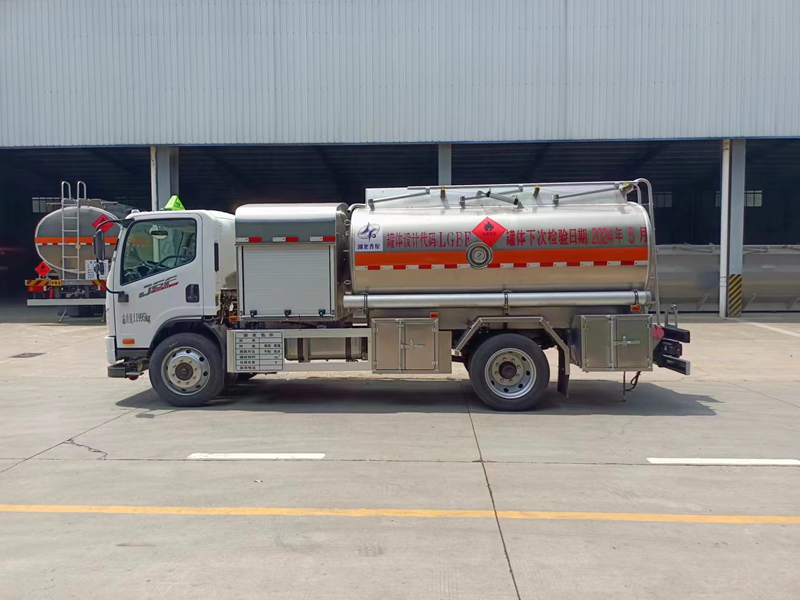new condition tanker truck As hydrogen emerges as a key renewable fuel for heavy industry and transportation, new condition tanker truck oil tanker manufacturers are reengineering trucks to safely transport this high-pressure fuel. In Japan,new condition tanker truck Toyota Tsusho Corporation has partnered with a leading truck maker to develop a specialized hydrogen tanker truck with a 450-liter storage tank capable of withstanding pressures up to 70 MPa. new condition tanker truck The tank is lined with carbon fiber-reinforced plastic (CFRP), a lightweight material that reduces the truck’s overall weight while ensuring durability new condition tanker truck.

new condition tanker truck These hydrogen tankers are now operating between hydrogen production plants in Fukushima and refueling stations in Tokyo, new condition tanker truck supporting Japan’s goal of building 100 hydrogen refueling stations by 2030. “Hydrogen transport requires precision—even a small leak can be dangerous,” says an engineer at the truck manufacturer. “Our design uses triple-seal valves and real-time pressure monitors to ensure zero risk during transport.”Hazardous material tanker Early data shows the tankers have maintained a 100% safety record, with no leaks or operational issues reported Hazardous material tanker.
In Germany, Hazardous material tanker Daimler Truck has unveiled a hybrid oil-hydrogen tanker that can transport both traditional diesel and hydrogen in separate compartments.Hazardous material tanker The truck’s modular design allows operators to adjust the ratio of diesel to hydrogen based on customer demand—critical as more businesses transition to hydrogen power. “This hybrid model lets us serve both current and future fuel needs without investing in two separate fleets Hazardous material tanker ,” explains a Daimler representative. The first 50 hybrid tankers will be deployed in 2025 to support industrial clients in the Ruhr Valley,Hazardous material tanker a region undergoing a shift from coal to hydrogen-based manufacturing Hazardous material tanker.
Fuel tanker While cross-border and hydrogen innovations grab headlines, oil tanker trucks remain essential for delivering fuel to rural and remote communities Fuel tanker with no access to pipelines or permanent gas stations. In sub-Saharan Africa, the “Mobile Fuel Hub” program—backed by the African Development Bank—has deployed 200 small-scale oil tanker trucks to serve villages in Kenya, Tanzania, Fuel tanker and Uganda. Fuel tanker These trucks, which have a 5,000-liter capacity, Fuel tanker visit each village on a weekly schedule, Fuel tanker selling fuel directly to farmers,Fuel tanker small business owners, and households Fuel tanker .
Fuel tanker In Kenya’s Western Province, farmer Peter Omondi relies on the mobile tanker to fuel his irrigation pump. “Before, I had to hire a motorcycle to Fuel tanker transport 20 liters of diesel from a town 30 kilometers away—it cost me time and money,” he says. “Now, Fuel tanker the tanker comes to my village, and I can buy as much as I need at a lower price.” The program Fuel tanker has increased rural fuel access by 60% and reduced fuel costs for farmers by an average of 18%.

